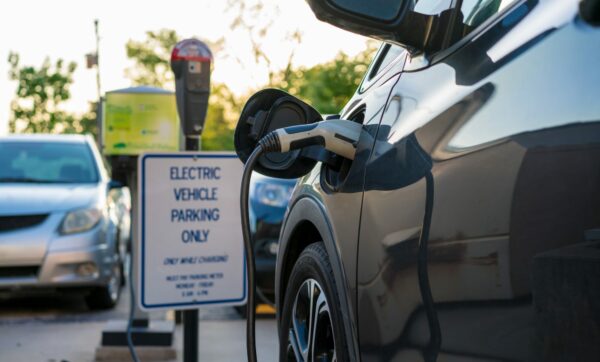China-US Trade War: US Auto Sector Braces for China Tariff Fallout as EV Rivals

Beijing’s stimulus measures, aimed at boosting domestic consumption, position China as a key market for US automakers, particularly if the US enters a recession. The US auto sector contributes 3-5% to US GDP and directly or indirectly employs around 5 million workers.
On March 9, the Kobeissi Letter highlighted the darkening clouds for the US auto sector:
“The share of subprime car borrowers at least 60 days past due on their loans hit 6.6% in January, the highest in at least 30 years. […]. Levels now exceed levels seen in 2020, 2008, and the previous peak recorded in 1996.
Considering the dynamics, the US administration may face challenging trade talks. China’s foreign minister recently said that if the US insists on waging a trade or tariff war, China will see it through to the end.
China’s Transition to a Consumer-Driven Economy and US Goods
Last week, Beijing released its 2025 Work Report, outlining economic targets and pledging monetary and fiscal policy support. These measures are part of China’s bigger goal of transitioning from an export-reliant to a consumption-led economy. While this reduces China’s dependence on overseas demand, domestic consumption could boost demand for national and international brands, affecting US businesses reliant on Chinese consumers.
For the US auto sector—a key indicator of broader labor market trends—China’s evolving economic policies could be crucial.
Market Moves: Hang Seng Index and Mainland Markets Face Modest Losses
Despite Monday’s US market sell-off, Hong Kong and Mainland China-listed stocks posted modest losses on Tuesday, March 11.
The Hang Seng Index fell 0.34%, while the Mainland’s CSI 300 and Shanghai Composite Index dropped 0.41% and 0.32%, respectively. Meanwhile, the buying frenzy for tech stocks continued, with the Hang Seng Tech Index up 0.89%.
Hong Kong-listed auto stocks Li Auto and BYD saw further gains on March 11, giving year-to-date gains of 19% and 31%, respectively. In contrast, General Motors was down 9.74% year-to-date, with Tesla tumbling 45%.
This article was originally published by a www.fxempire.com
Read it HERE






